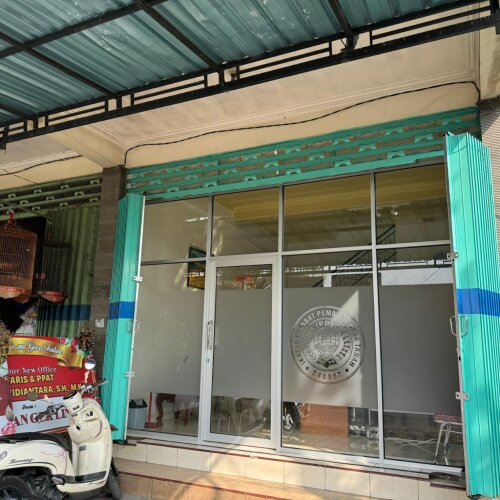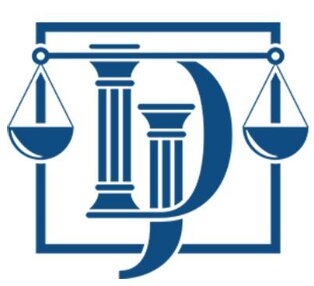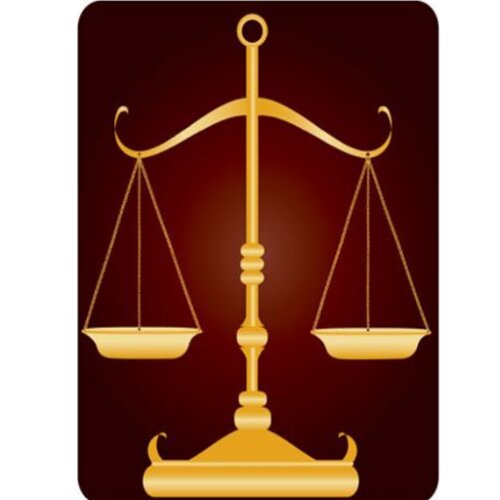Best Guardianship Lawyers in Indonesia
Share your needs with us, get contacted by law firms.
Free. Takes 2 min.
Or refine your search by selecting a city:
List of the best lawyers in Indonesia

Jiwangga Law Office | Lawyer Surabaya | Advokat Surabaya | Pengacara Surabaya
30 minutes Free ConsultationAbout Guardianship Law in Indonesia
Guardianship in Indonesia is a legal concept designed to protect individuals who are unable to care for themselves or manage their affairs due to age, disability, or other circumstances. The law provides a framework for appointing a guardian, who is responsible for ensuring the well-being and managing the affairs of the ward (the person in need of guardianship). This includes minors, individuals with mental health issues, and elderly individuals who can no longer manage their personal, medical, or financial needs.
Why You May Need a Lawyer
Legal representation can be critical in guardianship cases for several reasons:
1. **Complex Legal Procedures**: Navigating the legal system and understanding the intricacies of guardianship law requires specialized knowledge that a lawyer can provide.
2. **Disputes Over Guardianship**: Families or interested parties may disagree over who should be appointed as a guardian, requiring legal intervention.
3. **Guardianship Types**: There are different types of guardianship, each with specific rules and requirements, making it necessary to understand which type is most suitable for a given situation.
4. **Legal Rights and Responsibilities**: A lawyer can help clarify the legal responsibilities of a guardian, ensuring compliance with laws and safeguarding the ward's rights.
5. **Protection Against Abuse**: Legal professionals can help address issues related to the abuse or neglect of the ward by a guardian.
Local Laws Overview
Guardianship laws in Indonesia are primarily governed by the Civil Code, which outlines the process for appointing a guardian and the duties and responsibilities involved. Key aspects include:
1. **Eligibility**: Guardians must be capable, of legal age, and of good moral character.
2. **Appointment Process**: A court proceeding is required to appoint a guardian, emphasizing the best interest of the ward.
3. **Ward's Rights**: The law ensures that the ward retains certain rights and freedoms, such as the right to participate in decisions affecting their welfare.
4. **Types of Guardianship**: National law distinguishes between guardianship for minors and those with physical or mental disabilities.
5. **Reporting Responsibilities**: Guardians must regularly report to the court on the ward’s condition and any significant decisions made on their behalf.
Frequently Asked Questions
1. What are the different types of guardianship available in Indonesia?
Guardianship types generally include guardianship for minors, guardianship for adults with disabilities, and temporary or emergency guardianship.
2. How is a guardian appointed in Indonesia?
A guardian is appointed through a legal procedure in court, where the judge evaluates the best interests of the ward after reviewing evidence and testimonies.
3. Can a guardian be removed or replaced in Indonesia?
Yes, a guardian can be removed or replaced if they are found incapable, neglectful, or abusive towards the ward.
4. What are a guardian's responsibilities?
Guardians are responsible for the personal care, medical decisions, and financial management of the ward, ensuring the ward's needs are met adequately.
5. How long does the guardianship process take?
The length of the process can vary; it generally depends on the complexity of the case and the workload of the judicial system.
6. What is the role of the court in guardianship cases?
The court oversees the appointment process, monitors the guardian's duty performance, and handles disputes or misconduct issues.
7. Can guardianship decisions be contested?
Yes, interested parties can contest guardianship decisions by presenting compelling evidence or arguments to the court.
8. Are there alternatives to guardianship in Indonesia?
Alternatives may include power of attorney arrangements or family-led care, depending on the specific circumstances of the ward.
9. What is an emergency guardianship?
Emergency guardianship is a temporary arrangement granted when immediate decisions must be made for the welfare of the ward, lasting until a permanent guardian is appointed.
10. Do guardians receive compensation?
Guardians may be entitled to reasonable compensation for their duties, but this is subject to court approval and varies by case.
Additional Resources
For further assistance, consider the following resources:
1. **Ministry of Law and Human Rights of the Republic of Indonesia**: Provides legal guidance and resources on guardianship laws.
2. **Local Legal Aid Institutes (Lembaga Bantuan Hukum - LBH)**: Offer assistance and advice for individuals seeking guardianship legal help.
3. **Social Service Agencies**: Can provide support services for wards in need of guardianship.
4. **Family Courts**: Handle guardianship cases and can be contacted for case-specific information.
Next Steps
If you believe you need legal assistance with guardianship, consider these steps:
1. **Consult with a Lawyer**: Seek advice from a qualified lawyer specializing in family law and guardianship.
2. **Prepare Necessary Documents**: Gather any relevant medical records, financial information, and personal identification for the ward.
3. **File a Petition**: Work with your lawyer to file a petition for guardianship with the appropriate family court.
4. **Attend Court Hearings**: Be prepared to attend court hearings and provide testimony or evidence to support your case.
5. **Regularly Review Guardianship Arrangements**: Once appointed, continuously assess and report on the ward's condition and decisions made on their behalf.
Lawzana helps you find the best lawyers and law firms in Indonesia through a curated and pre-screened list of qualified legal professionals. Our platform offers rankings and detailed profiles of attorneys and law firms, allowing you to compare based on practice areas, including Guardianship, experience, and client feedback.
Each profile includes a description of the firm's areas of practice, client reviews, team members and partners, year of establishment, spoken languages, office locations, contact information, social media presence, and any published articles or resources. Most firms on our platform speak English and are experienced in both local and international legal matters.
Get a quote from top-rated law firms in Indonesia — quickly, securely, and without unnecessary hassle.
Disclaimer:
The information provided on this page is for general informational purposes only and does not constitute legal advice. While we strive to ensure the accuracy and relevance of the content, legal information may change over time, and interpretations of the law can vary. You should always consult with a qualified legal professional for advice specific to your situation.
We disclaim all liability for actions taken or not taken based on the content of this page. If you believe any information is incorrect or outdated, please contact us, and we will review and update it where appropriate.
Browse guardianship law firms by city in Indonesia
Refine your search by selecting a city.















